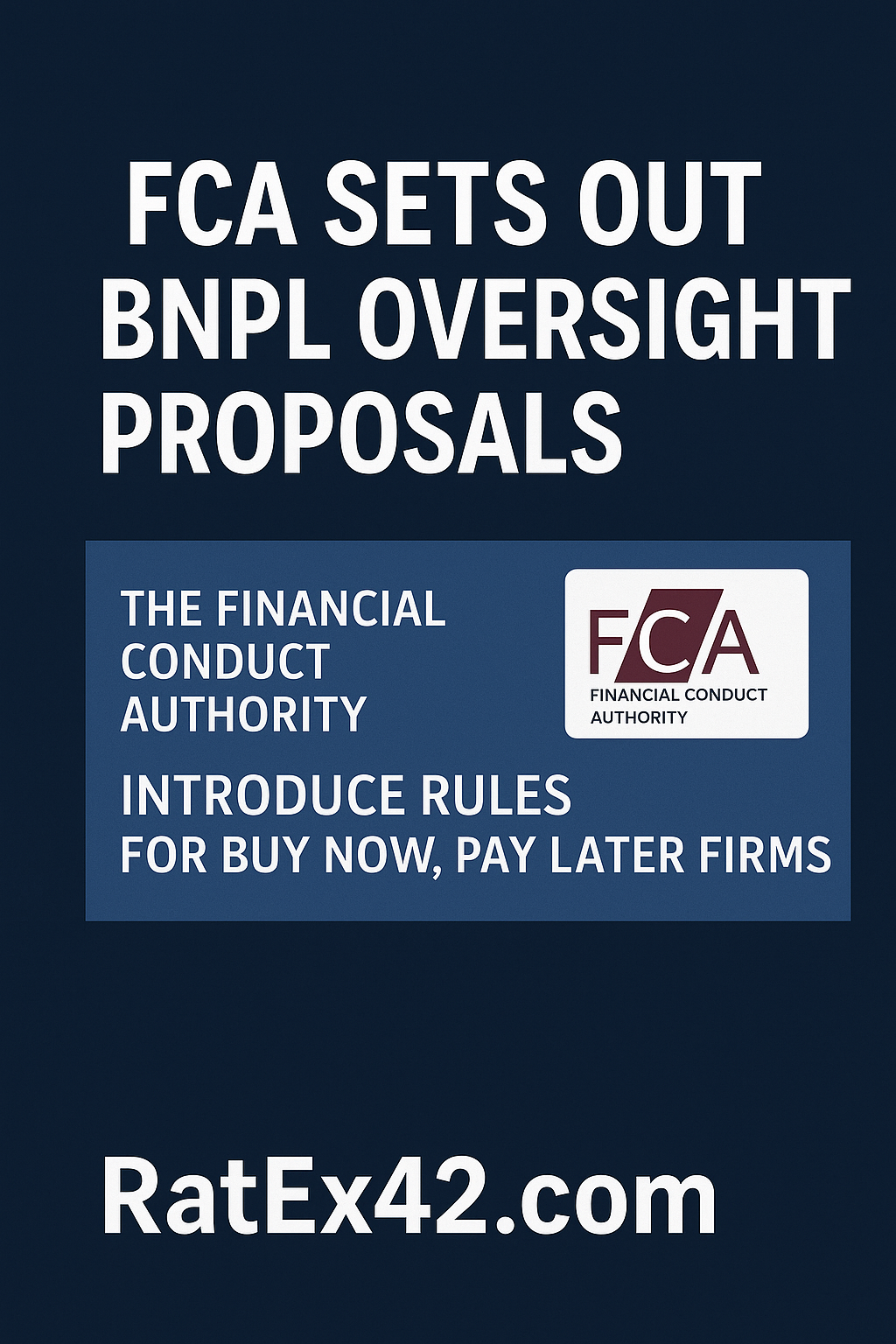he UK’s Financial Conduct Authority is moving to bring BNPL firms under formal regulatory scrutiny. But its proposed rules may also offer a preview of how future oversight could hit crypto lending and on-chain installment products.
The news: FCA outlines BNPL regulation framework
As reported by Finextra, the FCA has launched a public consultation on how Buy Now, Pay Later (BNPL) services should be brought into the UK’s formal consumer credit regime.
While some BNPL providers (like Klarna or Clearpay) operate partially under consumer law, the sector has remained lightly regulated, especially regarding credit checks, transparency, and dispute resolution.
The FCA’s proposed plan would:
- Require BNPL providers to be fully authorised by the FCA
- Apply Section 75 consumer protection rights to BNPL purchases
- Introduce mandatory affordability checks
- Impose advertising and disclosure rules akin to credit cards
- Hold merchants jointly liable for mis-sold BNPL transactions
A consultation period is open until October 2025, after which formal legislation is expected.
Why it matters beyond BNPL
While this proposal directly targets traditional BNPL, the implications could ripple far wider—especially into crypto-adjacent finance, including:
- On-chain installment protocols (e.g., lending stablecoins in tranches)
- Tokenized buy-now structures (real-world assets paid off in DeFi)
- Embedded lending in wallets or marketplaces
As crypto increasingly mimics fintech functionality, the FCA’s BNPL proposals set a tone for how hybrid credit models will be regulated—even if they originate from smart contracts, not fintech apps.
Strategic implications for RatEx42
1. Crypto credit rails may fall under “BNPL-style” scrutiny
Even if uncollateralized lending is rare in DeFi, any crypto-native protocol offering time-based repayment, installment funding, or buy-now tokenization may eventually be treated like consumer credit—especially in Europe and the UK.
RatEx42 will begin tagging lending protocols in our ecosystem reports with regulatory proximity scores tied to BNPL risk criteria.
2. Custodial wallets offering lending will need disclaimers
If a crypto wallet front-end facilitates structured lending—whether via USDC or tokenized assets—it may soon need risk warnings, credit checks, and dispute processes, even if the backend is decentralized.
3. A regulated DeFi-BNPL bridge may emerge
There is real opportunity for startups that integrate DeFi repayment schedules with FCA-compliant consumer protections. Expect a wave of “hybrid BNPL” solutions targeting real-world asset protocols and Web3 marketplaces.
RatEx42 will watch for partners building regulated front-ends for crypto-financed consumer purchases.
Bottom line
The FCA’s BNPL proposal may seem fintech-focused—but in reality, it’s a foundational step toward regulating algorithmic credit, no matter where it lives.
As crypto credit rails expand beyond collateralized loans, we’ll need better borrower protections, clearer terms, and transparent recourse—not because crypto fails to deliver, but because consumer trust can’t be decentralized overnight.
BNPL is just the first domino.
More at RatEx42.com




